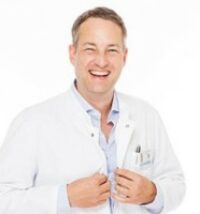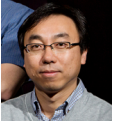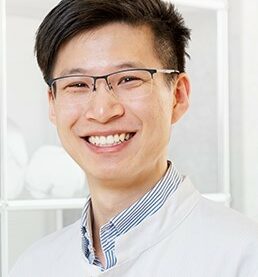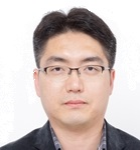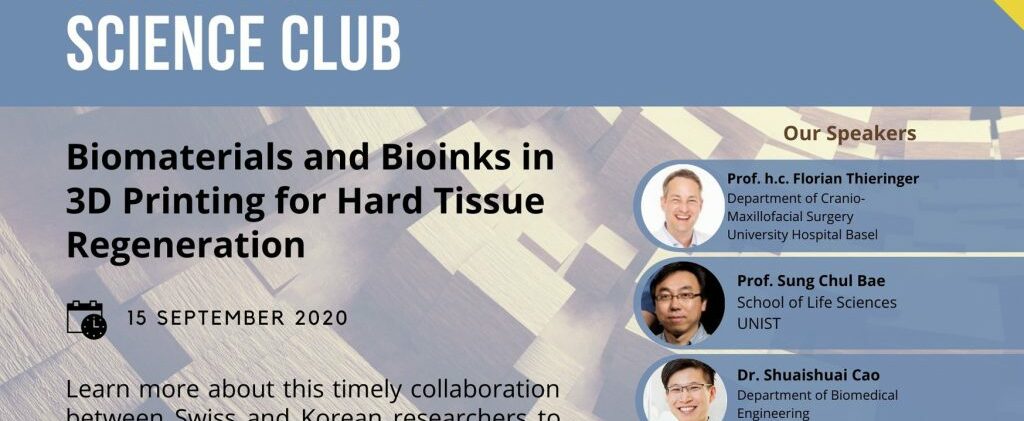
This month's speakers
-
![]()
Bio
Prof. h.c. Dr. Dr. Florian Thieringer
Senior Consultant Cranio-Maxillofacial Surgery at the Department of Surgery, University Hospital BaselFlorian M. Thieringer is currently Senior Consultant Cranio-Maxillofacial Surgery at the Department of Surgery, University Hospital Basel, Switzerland. He is also head of the Medical Additive Manufacturing (SwissMAM) research group at the Department of Biomedical Engineering at the University of Basel and Co-Director of the transdisciplinary 3D Print Lab at the University Hospital Basel. After graduating with a double degree from TU Munich and LMU Munich in Germany, he completed his specialization in oral and cranio-maxillofacial surgery in Basel, Switzerland. In addition, he completed a Master’s Degree in Health Business Administration (MHBA) at the University of Erlangen-Nuremberg, Germany.
His clinical and research interests include computer-assisted surgery and additive manufacturing for regenerative surgery, cranio-maxillofacial deformity and trauma, tumor surgery and reconstruction, oral implants and training in CMF surgery.
Florian M. Thieringer, laureate of the Hugo-Obwegeser Prize 2016, has been appointed Honorary Professor of the University of Leon, Nicaragua in 2018 and is an honorary member of the “Sociedade Brasileira de Cirurgia e Traumatologia Buco Maxilo Facial”. He has published numerous scientific articles and has lectured at more than 200 scientific congresses and courses. Thieringer is editor-in-chief of the SAGE journal “Craniomaxillofacial Trauma & Reconstruction Open” and guest editor of several other scientific journals like the Journal of Clinical Medicine, “Innovation in Head and Neck Reconstructive Surgery”. He is vice chair of the AO CMF community development commission (CDC) and board member of AO CMF Europe and South Africa.
-
![]()
Bio
Prof. Sung Chul Bae
Associate Professor in the Department of Biomedical Engineering , UNISTSung Chul Bae is an Associate Professor in the Department of Biomedical Engineering at Ulsan National Institute of Science and Technology(UNIST), Ulsan, South Korea. Since this spring, he has served as a Director of the Global Research Center for Organ Mimetics (GROM) funded by the National Research Foundation in Korea. Established by trilateral cooperation of UNIST, University of Basel and Wake Forest Institute for Regenerative Medicine (WRIFM), the research center aims to further develop organ-on-a chip and 3D bio-printing technologies. He is also serving at the Administration Office at UNIST. He served as a Dean of University-Industry Relations for 4 years before he has served as a Dean of Planning and Budget this year.
At the Office of University-Industry Relations, he developed many global collaboration programs and University of Basel is one of key global partners since 2016. Prior to joining UNIST in 2013, he was a Research Scientist in the Department of Materials Science and Engineering of the University of Illinois at Urbana-Champaign. He received his Ph.D. in Chemistry from POSTECH in 1997. Dr. Bae has publishes about 70 publications, and they were cited over 5,000 times as of September 2020.
-
![]()
Bio
Dr. Shuaishuai Cao
Department of Biomedical Engineering, University of BaselHaving graduated as a dentist (DDS) in Guangzhou, China in 2014, upon having successfully completed a three-year program at Guangzhou Medical University, he obtained his Master in dentistry mainly focus on 3D printing biomaterials for mandibular reconstruction. In 2015, he worked as a maxillofacial surgeon at the University Dental Hospital of Guangzhou Medical University. Since 2017, Shuaishuai Cao moved to Switzerland and joined in Medical Additive Manufacturing research group (MAM) at the University of Basel, Department of Biomedical Engineering as a PhD student. He has been working on 3D printing clinical research for more than six years especially in bone defect reconstruction. Now, he is in charge of 3D bio-printing and bone regeneration projects under Prof. Thieringer’s. His current research deals with the development of innovative bioinks and composite biomaterials, including physical-mechanical, chemical, and biological property evaluation of dental biomaterials, as well as characterization of interfacial interaction of biomaterials with dental hard and soft tissues. Additionally, Shuaishuai Cao is participating in a number of international research projects and has published several important papers related to 3D printing for regenerative medicine.
-
![]()
Bio
Prof. Hyun-Wook Kang
Assistant professor of Department of Biomedical Engineering, UNISTHyun-Wook Kang received Ph. D. in 2009 from the Department of Mechanical Engineering at the Pohang University of Science and Technology (POSTECH). After getting Ph.D. degree, he worked as a research fellow at the Wake Forest Institute for Regenerative Medicine (WFIRM) in USA, which is one of the world’s top research centers for tissue engineering and regenerative medicine. Then he was promoted to a faculty member at the WFIRM in 2013. He joined the faculty of UNIST as an assistant professor of Department of Biomedical Engineering since February 2015.
His research interests include 3D bioprinting system and process to produce biomimetic cellular construct, artificial tissue or organ regeneration, regenerative medicine, body-on-a-chip, drug delivery system, and development of functional prosthesis.
“Biomaterials and Bioinks in 3D Printing for Hard Tissue Regeneration”
Abstract: Oral and maxillofacial bone defects caused by trauma, tumors, and malformations are commonly presented for treatment in clinical scenarios. Such defects can cause physiological and psychological afflictions to patients. With the complexities underlying bone defects, bone architectures, and unique functions associated with affected bones, available effective reconstructive possibilities remain elusive and challenging to develop for clinically based treatments. Ultimately, oral and maxillofacial bone reconstruction goals include imitating and reconstructing original anatomical features, and providing desirable long-term function and aesthetic. the development of materials and fabrication process.
In this respect, three-dimensional (3D) printing customized and biofunctional components (e.g. extracellular matrix (ECM), cells and growth factors) for creating bio-active scaffolds is a promising approach for tissue regeneration. The challenge in 3D printing for regenerative medicine is the selection of biomaterials and their formulation which must not only generate a cell-friendly environment but also meet the requirements for biomechanical property and printability. For example, the ECM of bone tissue consists of organic collagen and inorganic bone mineral hierarchically organized across multiple length scales. Various biomaterials have been explored as a synthetic bone substitute. However, most strategies have focused primarily on the use of biomaterials mimicking the chemical composition of bone and considering its structural performance. Great challenges remain in the complex construct, lack of biological activity, unmanaged pore characteristics, and poor mechanical properties. Therefore, the design and fabrication of biocompatible and biodegradable living substitute with stem cells mimicking the complex architecture of native tissue remain a critical challenge.
The Medical Additive Manufacturing (MAM) research group in University Hospital Basel is composed of experienced clinicians and researchers with 3D printing technology, we mainly focus on developing biomaterials which are suitable for 3D printing in oral and maxillofacial reconstruction. In particular, we propose to use the 3D biofabrication technology and innovative bio-inks with stem cells developed by Korean partners to achieve personalized and bioactive scaffold. As our first collaboration outcome, we 3D printed polymer composite and tricalcium phosphate as the bone repair scaffold and loaded with human dental pulp stem cells. In this way, we expect to create a living scaffold to promote osteogenic differentiation.
The goal of this in-depth collaboration is to initiate a long-term partnership on research and development of advanced solutions for regenerative medicine through the 3D biofabrication and biomaterials and to fabricate patient-specific artificial substitutes. We anticipate that the further outcomes of this project will be converted into commercial medical products and offer new possibilities for daily clinical treatments in the future.
